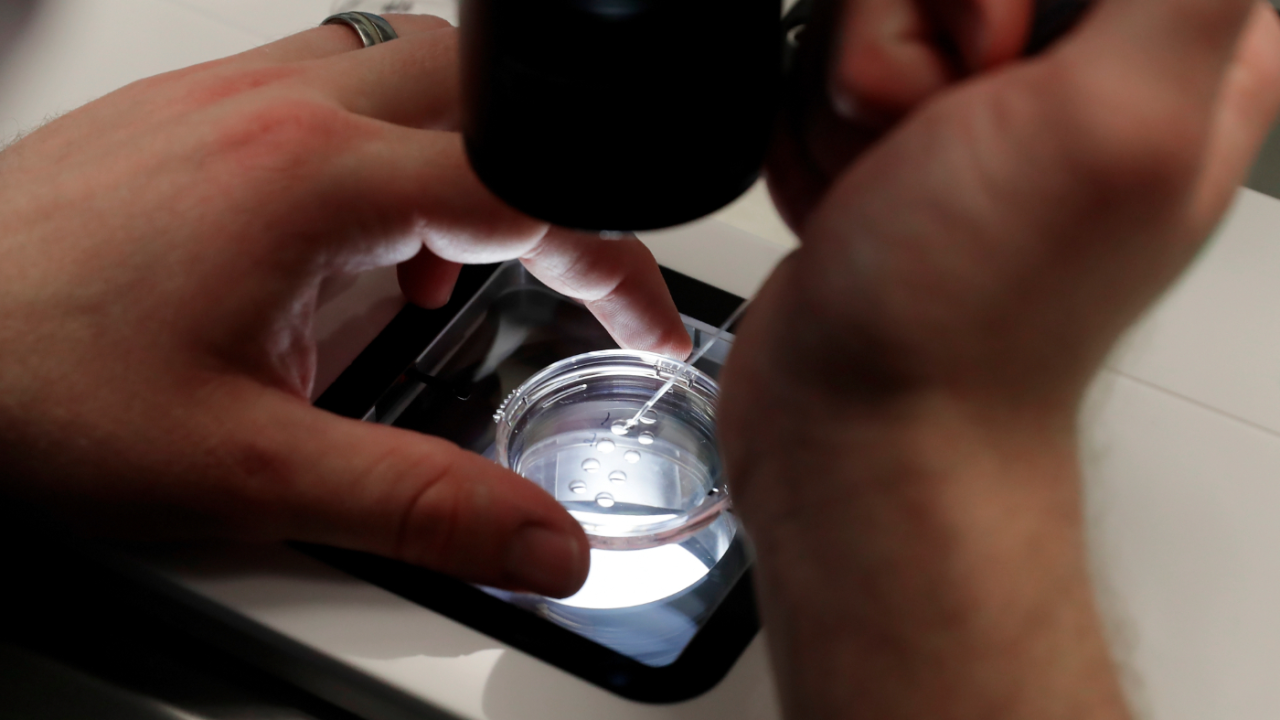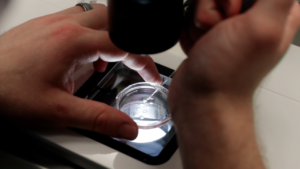When Kirstyn Cooke heard about President Trump’s plan to slash the cost of IVF medication, she couldn’t quite bring herself to believe it.
To pay for the drugs she had needed for three rounds of the procedure, Ms. Cooke, a 42-year-old nurse from Philadelphia, had borrowed money from her pension and relied on strangers from a Facebook support group, driving hours to buy their leftover medications.
Now, a president she couldn’t stand was taking credit for a deal he claimed would cut the cost of IVF drugs by nearly 75 percent.
“As much as I don’t like him, that would be an amazing thing if it did go through,” said Ms. Cooke, who hopes to have several children through I.V.F.
“I don’t know if this is coming from a very humble place of him truly wanting to help women get pregnant,” said Ms. Cooke, a Democrat, adding that she suspected Mr. Trump was pushing these policies because he wanted to raise the birthrate. “But if I can benefit from it, then great.”
In a long-awaited announcement delivered last month from the Oval Office, Mr. Trump described a two-prong approach to reducing the cost of the procedure. His administration would be encouraging, but not requiring, employers to offer I.V.F. and broader infertility coverage directly to workers, while working with a major pharmaceutical company, EMD Serono, to slash the price of several I.V.F. medications.
Those policies fell far short of the universal coverage mandate that Mr. Trump had originally promised. I.V.F. experts expect the pharmaceutical deal to result in about a 10 to 20 percent discount on the total price of the procedure, which typically costs between $15,000 and $20,000 for a single cycle. Without government subsidies or other incentives to entice companies to provide I.V.F. coverage, it is unclear how many would add the benefit to insurance plans.
But despite the gulf between Mr. Trump’s campaign pledge and the actual announcement, some Americans struggling with infertility — even those staunchly opposed to his presidency — have been encouraged by a policy they hope will be a first step toward lowering costs. The response suggests that Mr. Trump, with his I.V.F. policy, may have found a rare issue where his efforts can transcend at least some ideological divisions. On Thursday, Mr. Trump announced similar discounts for weight-loss medications, another move likely to resonate across party lines.
At his infertility clinic in Austin, Dr. Kaylen Silverberg, a longtime I.V.F. specialist, turned on televisions as Mr. Trump announced his I.V.F. policy so his patients could watch.
“I was watching my patients sobbing in the waiting room, including a lot of women who I suspect don’t like the president,” said Dr. Silverberg, who consulted with the White House on the policies and serves as the advisory board chair for Americans for I.V.F., an advocacy group.
Kush Desai, a White House spokesman, called the policy a “historic initiative,” adding that the push to encourage employers to cover I.V.F. was the “single most effective action that can be taken without Congress to expand I.V.F. coverage for the people who would need it most.”
Mr. Trump began embracing infertility issues on the campaign trail in early 2024, after the Alabama Supreme Court ruled that frozen embryos used in I.V.F. should be considered children — a decision that sparked widespread backlash across the country and caused some clinics in the state to halt services. Eager to show his full support for the popular procedure, Mr. Trump urged the Alabama legislature to protect access, and later promised to make I.V.F. free, without providing details on how he would do so.

Within weeks of taking office, Mr. Trump signed an executive order pledging to lower the cost of I.V.F.
But soon it became clear that the path forward on the issue would be more complicated than the administration had anticipated. Throughout the spring, senior White House officials met regularly with both proponents of I.V.F. and Christian conservatives who had deep moral concerns about a procedure that involves the discarding of human embryos — influential voices who urged the administration to stop short of the promises the president had made.
The resulting announcement on I.V.F. policy, which came months later than expected, appeared carefully crafted to appease those on both sides of the issue, highlighting the president’s support for the procedure without providing discounts large enough to significantly expand access to it.
Mr. Trump’s policy resulted from a deal with EMD Serono alone, but Mr. Trump said he expected other drug companies to drop their prices to stay competitive.
The agreement will allow I.V.F. patients to buy some medications for the procedure at a discounted price through a website the Trump administration plans to create. While Mr. Trump claimed the deal would cause the cost of I.V.F. drugs to drop by roughly 73 percent, he offered little evidence to back up that number, and the medications account for only about a third of the cost of the procedure.
A spokeswoman for EMD Serono said that “the company saw an opportunity to partner with the president to help expand access to the innovation of our portfolio.” But she declined to provide the details of the deal.

“Will it completely change the game for families? Not for everyone,” said Danielle Melfi, the chief executive of Resolve, an I.V.F. advocacy organization, referring to the numbers the White House cited for anticipated discounts. “But if you do two or three rounds of I.V.F., that’s not nothing.”
Nahamah Afshar, who frequented the same I.V.F. support groups as Ms. Cooke, said she had been so desperate for free or low-cost medications that she used applicator pens with leftover drugs that had been used by someone else, risking infection.
“For women like me who are having trouble with infertility, the sound of a baby makes you cry, you want one so bad,” said Ms. Afshar, 39, who lives in Philadelphia. “I wanted a baby so bad, I didn’t care whose blood was in there.”
Ms. Afshar added that she viewed Mr. Trump as a president who rarely followed through on his commitments, but that she was holding out hope he would make good on this one. If medication costs drop by nearly 75 percent, she said, she would be able to buy the drugs on her own, without relying on help from strangers.
“You know there’s always a catch, so what’s the catch?” Ms. Afshar said of Mr. Trump’s policy. “I’ve got to see it to believe it.”
Some I.V.F. advocates expressed concern that Mr. Trump’s announcement would cause some families to delay their care, with the president having promised that the new policies were “just the beginning.” I.V.F. can become more difficult as women get older.
“I’m not holding my breath,” said Sean Tipton, the chief advocacy and policy officer at the American Society for Reproductive Medicine, the leading medical group for I.V.F. “And if I were a patient, I would not risk delaying treatment for the chance that there’s going to be full cost coverage coming.”
After Mr. Trump’s announcement on I.V.F., Brenda Clark and her husband — both Trump supporters — decided to wait longer before trying to have a third baby with I.V.F., hoping that the president would do more to lower costs. They were still paying off the personal loans they had taken out to have their second child, Ms. Clark said, and had been planning to go into credit card debt to cover the remaining $8,000 they would need to have another.
Ms. Clark, a 30-year-old in Perry County, Pa., didn’t want to wait. She was ready to grow her family now.
But she and her husband, a truck driver, believed deeply in the president they had both voted for.
“It’s worth a shot,” she said.






